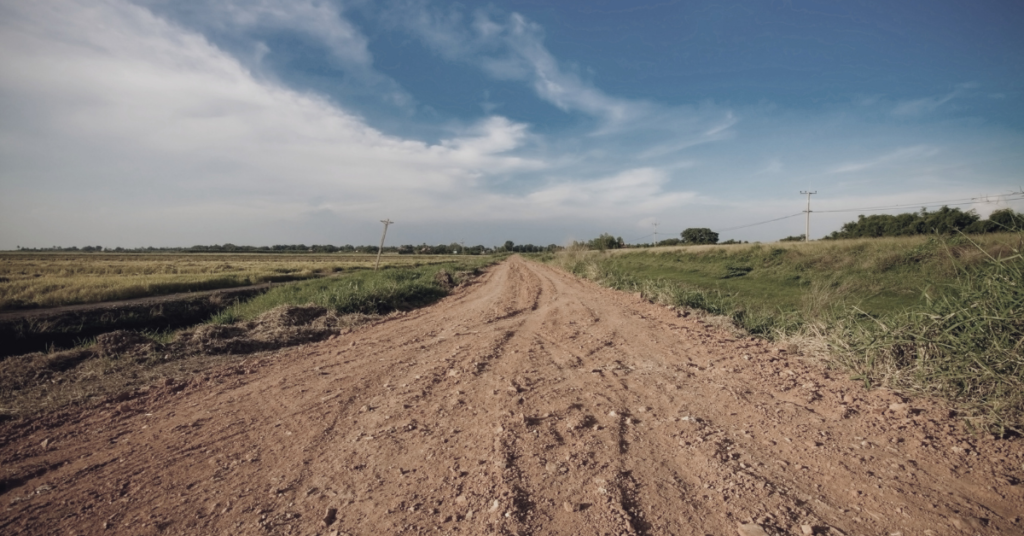Preparing for emergencies or unforeseen events is an essential practice that can help individuals and families stay safe and secure.
However, even the most prepared individuals can overlook certain critical things for survival and well-being.
In this article, we will discuss some of the things preppers forget so that you can ensure you have all your bases covered if you’re a prepper.
Prepping and Common Mistakes
Being prepared involves more than just stockpiling food and water. It requires careful planning and consideration of various factors. Unfortunately, it’s easy to overlook certain aspects of prepping that can make a significant difference in times of crisis.
By addressing these common mistakes, you can enhance your preparedness efforts and be more confident in navigating challenging situations.
Remember, being prepared is an ongoing process, and it’s essential to regularly review and update your preparations to ensure they remain effective and relevant.
Stay tuned as we explore the crucial aspects that preppers often forget, so you can be better prepared for any situation that may come your way.
Here are 10 Things Preppers Forget
#1 – Clothing and Footwear
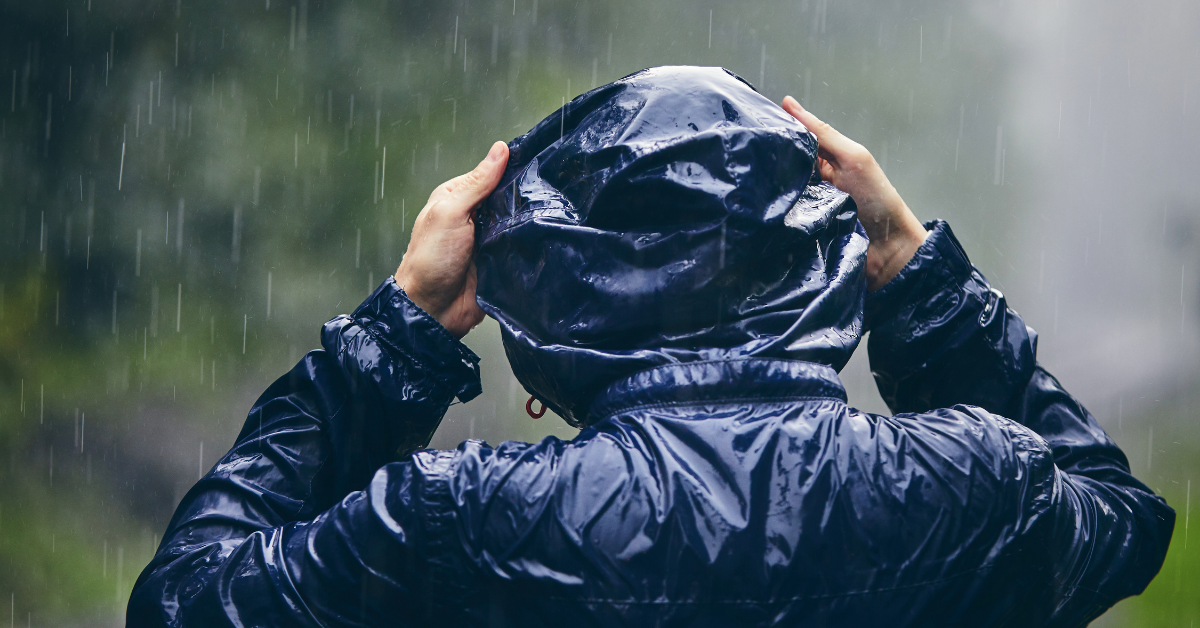
Why it is Important to Being Prepared for Varying Climatic Conditions and Physical Work
Many preppers need to pay more attention to the importance of appropriate clothing for various weather conditions and manual labor when preparing for emergencies or disasters.
Here are some key points to remember:
1. Layering: It is crucial to have clothing that allows for layering, especially in regions with fluctuating weather conditions. Layering helps regulate body temperature and provides versatility in different climates.
2. Rain Gear: Preppers should have waterproof jackets, pants, and boots to protect themselves from rain and wet conditions. Staying dry is essential for preventing hypothermia and maintaining overall comfort.
3. Cold Weather Gear: If you live in an area with cold winters, having thermal underwear, insulated jackets, hats, and gloves is essential. These items will ensure warmth and protect you from frostbite and other cold-related injuries.
4. Work Clothes: In times of emergencies, you may need to engage in manual labor, such as clearing debris or building temporary shelters. Durable work clothes, such as work pants and tough shirts, will protect you from cuts, abrasions, and other hazards.
5. High-Visibility Clothing: It is crucial to be easily recognizable in certain situations, especially during search and rescue operations. High-visibility clothing, such as reflective vests or bright-colored shirts, can significantly improve your safety.
The Need for Durable Shoes and Work Gloves

In addition to suitable clothing, preppers should not forget about footwear and work gloves. Here’s why:
1. Durable Shoes or Boots: In emergency situations, you may need to walk long distances or navigate rough terrain. Having sturdy, waterproof shoes or boots with good traction is crucial for avoiding injuries and ensuring mobility.
2. Work Gloves: Protecting your hands is essential during manual labor or handling various tasks. Work gloves provide grip, prevent blisters, shield against sharp objects, and reduce the risk of burns or chemical exposure.
Investing in quality clothing, footwear, and work gloves should be a priority for preppers. These items will provide comfort and protection and enhance your ability to handle different situations effectively.
Remember, being prepared means considering all the essential aspects, including clothing and footwear, to ensure your safety and well-being in challenging circumstances.
#2 – Off-Grid Cooking Solutions
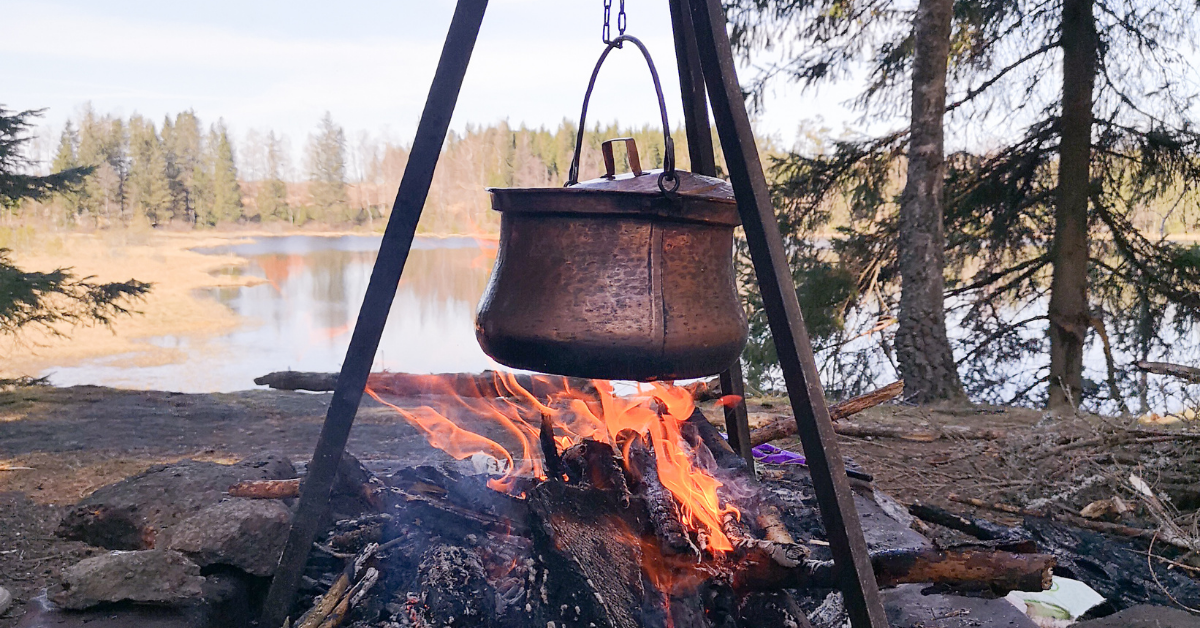
The Essential Role of Multiple Off-Grid Cooking Solutions in Emergency Preparedness
When prepping for emergencies and off-grid living, one of the most important aspects often overlooked is having multiple cooking solutions. While having a reliable food source is crucial, cooking it properly is just as important.
Here are a few reasons why having various off-grid cooking solutions is a necessity:
Versatility: Different cooking methods are suitable for various situations. Some methods work better for quick meals, while others are better for slow cooking or baking. Multiple cooking solutions allow you to adapt to different circumstances and prepare a wider range of meals.
Redundancy: Having multiple cooking methods ensures you do not rely on a single device or energy source. If one method fails or runs out of fuel, you will have a backup option to continue cooking your meals.
Energy Efficiency: Different cooking methods use different amounts of fuel or energy. By utilizing multiple ways, you can choose the most energy-efficient option based on the availability of fuel or the situation at hand. This can help conserve resources and extend your cooking capabilities.
Diversify Fuel Sources: When relying on a single cooking method, you are limited to the specific fuel it requires. Having multiple cooking solutions allows you to diversify your fuel sources. For example, you can have a wood-burning stove for outdoor cooking, a propane stove for indoor use, and a solar cooker for sunny days.
Adaptability: In emergencies, circumstances can change unexpectedly. Having multiple cooking solutions gives you the flexibility to adapt to changing conditions. For example, if you lose access to electricity, you can still cook using alternative methods.
By being prepared with multiple off-grid cooking solutions, you can ensure that you and your family are well-fed and nourished during emergencies or off-grid situations. Remember to include this essential aspect in your prepping plans.
Cooking inside a Tent?
If you are interested for some options to cook inside a tent we would appreciate if you check our article about
The Best Tent Stoves.
#Our favorite of all them is the DANCHELL OUTDOOR – T6/TSG.
#3 – Utility Cart
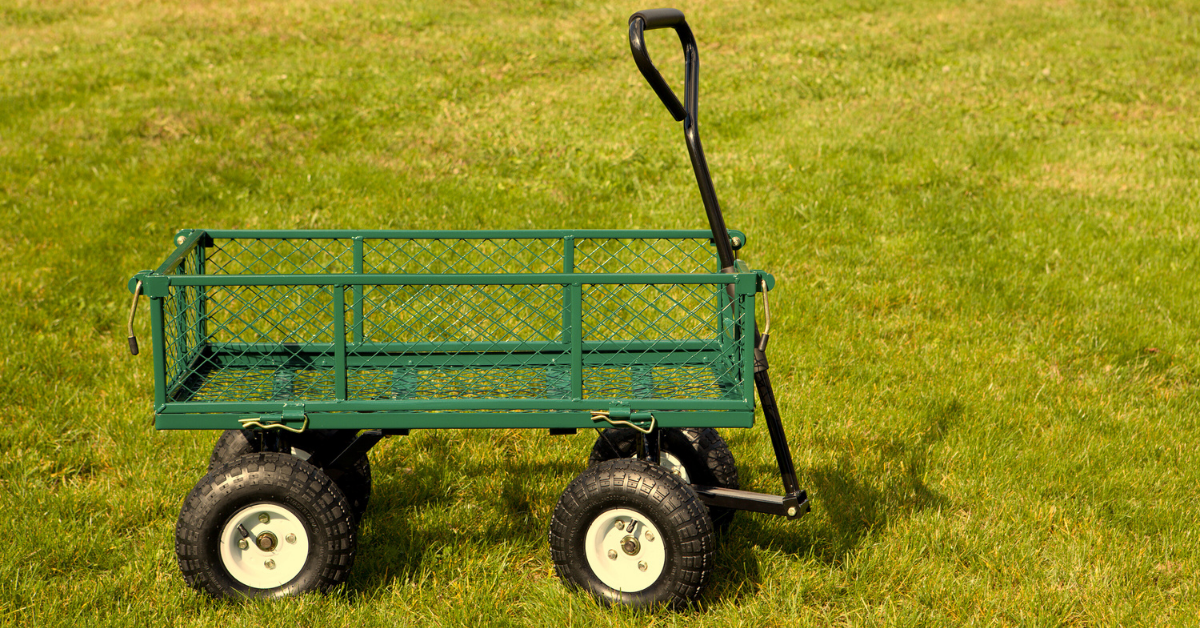
The Various Uses of a Utility Cart in Survival
Also important, that is often overlooked, is a utility cart.
Here are some of the various uses of a utility cart in a survival situation:
1. Transporting Heavy Items: In a survival situation, you may need to move heavy items such as water containers, firewood, or supplies. A utility cart can make this task much more manageable and save you from carrying heavy loads on your own.
2. Gathering and Storing Firewood: Firewood is essential for warmth and cooking in a survival situation. A utility cart can transport large quantities of firewood, making it easier to gather and store.
3. Carrying Tools and Equipment: A utility cart can serve as a mobile workstation, allowing you to carry tools and equipment with you as you move around. This can be especially useful if you must repair or build structures in a survival situation.
4. Transporting Injured or Fatigued Individuals: In emergencies, someone may become injured or tired and unable to walk on their own. The cart can transport them to safety or provide them with a place to rest while you seek help.
The Impact of Being Able to Transport Heavy Items Like Water
When it comes to survival, one of the most critical resources is water. However, water can be heavy and difficult to transport, primarily if you rely on carrying it by hand.
Now some reasons why having the ability to transport heavy items like water is crucial:
1. Hydration: Staying hydrated is essential for your health and well-being. By having the means to transport water, you ensure that you have an adequate supply to meet your hydration needs.
2. Cooking and Cleaning: Water is necessary for drinking, cooking, and cleaning. Transporting water allows you to prepare meals and maintain proper hygiene in a survival situation.
3. Bartering or Helping Others: In some scenarios, having excess water can be useful for bartering with others or offering assistance to those in need. By being able to transport heavy items like water, you have the means to provide aid to others or trade for necessary supplies.
4. Long-Term Survival: A sustainable water supply becomes even more critical if a survival situation is enduring. By being able to transport water, you can adapt to changing circumstances and ensure your long-term survival.
In conclusion, a utility cart is a versatile and valuable tool in a survival situation. It can be used for various purposes, including transporting heavy items like water.
By including a utility cart in your prepping supplies, you increase your chances of success and comfort in a survival scenario.
#4 – Spare Parts and Building Materials
Mostly we frequently concentrate on accumulating essential commodities like food provisions. Nevertheless, they sometimes neglect a few key components. Building materials and spare parts are two such often overlooked yet vital items.
Here’s why they are significant for your preparedness plan:
Why Spare Parts for Equipment Like Generators are Important
Generators are commonly used during power outages and emergencies to provide electricity. However, many preppers must remember to consider the importance of having spare parts for their generators.
When a generator breaks down, finding replacement parts in the midst of a crisis can be challenging. With spare parts on hand, you can quickly repair your generator and ensure a reliable power source.
Some typical generator spare parts to consider include:
- Spark plugs
- Fuel filters
- Air filters
- Oil filters
- Belts
- Carburetors
These spare parts can save you time, money, and frustration during an emergency.
Not yet equipped with a generator?
We checked the best generators on the actual market and can help you find the one that fits you.
The Best Generators for Home Using:
Solar Generator: Anker 767 Solar Generator
Fuel Powered: DuroMax XP13000HXT Generator
The Best Portable 5000 Watt Generators for Outdoor Using:
Solar Powered: EF Ecoflow Delta Max
Fuel Powered: Green-Power America GPD5000W
Having Building Materials for Repairs and Creating Physical Barriers
In a crisis, you may need to make repairs to your shelter, reinforce barriers, or create physical barriers to protect your property. Having the necessary building materials on hand can make these tasks much easier. Preppers often stock up on food and water but forget the importance of having basic construction materials.
Some essential building materials and survival items to consider include:
- Plywood
- Nails and screws
- Saw
- Tarps
- Duct tape
- Wire
- Brackets and connectors
These materials can help you quickly patch up a damaged structure, secure windows, and doors, or even construct temporary shelters if needed. Having these building materials readily available allows you to adapt to changing circumstances and create a safer environment for yourself and your loved ones.
In conclusion, preppers often overlook spare parts for essential equipment and building materials. However, they are crucial in ensuring your preparedness during a crisis. You can quickly address repairs and create necessary physical barriers by having spare parts for essential equipment like generators and a supply of basic building materials. Remember to include these items in your preparedness plan to prepare for any emergency fully.
#5 – Sewing Materials and Spare Glasses

Sewing Materials for Mending Clothes and Other Items
Items like sewing materials and spare glasses may seem like something other than essential, but they can prove invaluable in certain situations.
Sewing materials in your preparedness kit can be used for mending clothes and repairing other items. In some critical situations, access to new clothing may be limited, and being able to repair tears or rips in your clothes can make a big difference. Sewing materials such as needles, threads, and patches can help you extend the life of your clothing and keep you comfortable under challenging circumstances.
Plus, they turn out to be helpful for emergency repairs on tents or other equipment.
Spare Glasses for Those Who Need Them
If you wear glasses, having spare pairs can be a lifesaver. There is always the risk of losing or breaking your glasses, leaving you with impaired vision. Having a backup pair or two can ensure that you are still able to see clearly and continue with your daily activities. Including spare pair of glasses in your emergency kit and keeping them in a protective case to prevent damage is recommended.
Additionally, having the necessary tools to clean and maintain your glasses is essential, such as lens cleaner and a microfiber cloth. These small items can make a big difference in your ability to see clearly and function effectively in a crisis.
Remember, the little things can often be overlooked in emergency preparedness.
A sewing kit and spare glasses may not be at the top of your checklist, but they can prove to be incredibly valuable in certain situations. So, remember to include them in your preparedness plans.
#6 – Vehicle Maintenance and Fuel
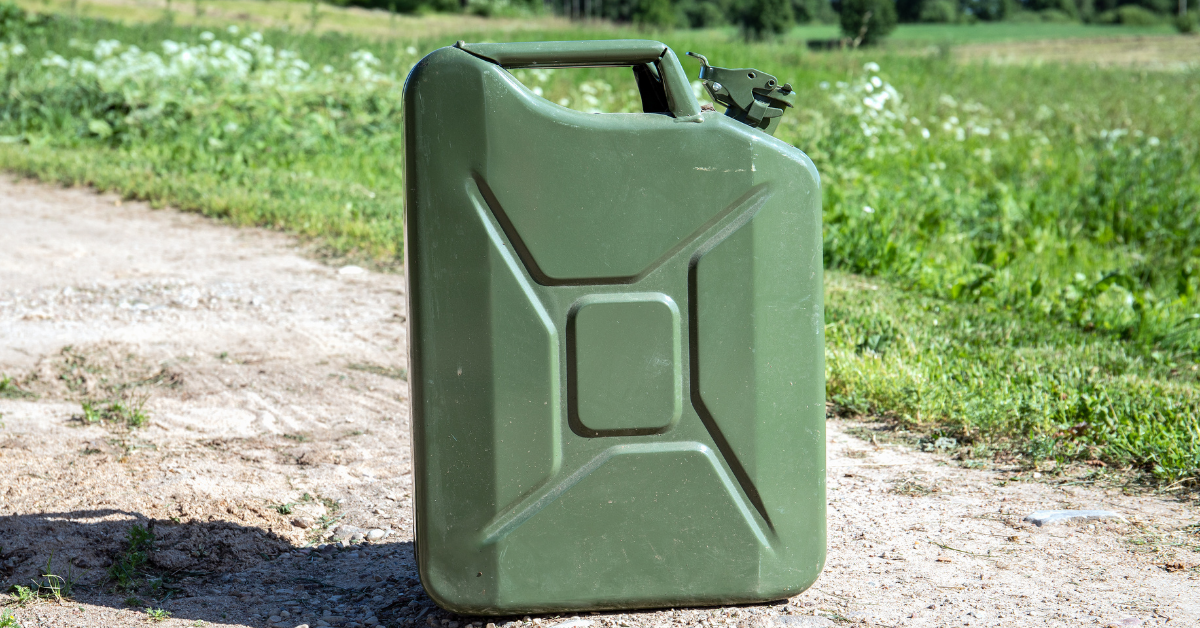
The Importance of Regular Vehicle Maintenance and Keeping The Fuel Tank at Least Half Full
Vehicle maintenance and fuel. Whether you’re preparing for a natural disaster or a widespread emergency, having a reliable means of transportation is always a good idea.
Here are some reasons why vehicle maintenance and fuel should be a priority in your prepping plan:
1. Reliable Transportation: In a Pinch, your vehicle may be your only means of getting to safety or accessing essential resources. Regular maintenance, such as checking the tires, brakes, and oil levels, can help ensure your vehicle is in good working order when needed.
2. Quick Getaway: Having a full tank of fuel can give you the flexibility to evacuate quickly or travel to a safer location. Keep your fuel tank at least half full at all times, as gas stations may be unavailable or have long lines during emergencies.
3. Power Outages: During power outages, gas stations may be unable to pump fuel without electricity. By keeping your tank at least half full, you can extend the time between fueling and ensure that you have enough fuel to run generators or other emergency power sources.
4. Gridlock and Roadblocks: In widespread emergencies, roads may become congested or even blocked. A well-maintained vehicle with good fuel efficiency can help you navigate traffic or find alternate routes if necessary.
5. Off-Road Capability: Depending on the nature of the emergency, you may need to travel off-road or on rough terrain. Regular maintenance, such as checking the suspension, steering, and tires, can help ensure your vehicle can handle these conditions.
By prioritizing vehicle maintenance and fuel, you can increase your chances of staying safe and mobile during emergencies. Establishing a regular maintenance schedule, such as keeping your vehicle stocked with essential supplies like a spare tire and emergency kit and always being prepared for the unexpected.
#7 – Personal Health and Special Health Needs

Maintaining Personal Health and Managing Chronic Health Issues
One central aspect that preppers often forget is personal health. In a survival situation, maintaining good health is vital for both physical and mental well-being.
Here are some key points preppers should consider:
1. Regular Exercise: Staying active is crucial for maintaining physical fitness and overall health. Even in a challenging situation, finding ways to stay active, such as walking or performing bodyweight exercises, can help boost stamina and keep the body functioning optimally.
2. Managing Chronic Health Issues: Preppers with chronic health conditions must have a plan to manage their needs during emergencies. This may involve stockpiling necessary medications, keeping an emergency medical kit on hand, and consulting healthcare professionals for guidance.
3. Mental Health: Stress and anxiety can be elevated during crises. It’s essential to prioritize mental health and have coping mechanisms in place. This may include practicing relaxation techniques, maintaining social connections, and seeking professional help if needed. [1]
The Need to Consider Special Dietary/Health Needs for Infants and People with Specific Conditions
In addition to personal health, preppers should also consider individuals’ special dietary and health needs, including infants and those with specific conditions.
Here are some key considerations:
1. Infants: When preparing for emergency situations, it’s essential to have a plan for infants who may require special formulas or bottles. Stockpiling a sufficient supply of necessary baby supplies, including diapers, wipes, and baby food, is crucial.
2. Dietary Restrictions/Allergies: It’s important to consider family members or group members’ dietary restrictions or allergies. Stockpiling food items that cater to specific dietary needs, such as gluten-free or dairy-free options, can ensure everyone’s well-being during emergencies.
3. Medications and Medical Supplies: Individuals with specific medical conditions, such as diabetes or allergies, may require medications or specialized medical supplies. It’s vital to stockpile an adequate supply of these items to manage their health effectively during emergencies.
By considering personal health and the special health needs of infants and individuals with specific conditions, preppers can ensure that everyone’s well-being is adequately addressed during emergencies. Taking the necessary steps to maintain good health and plan for potential medical needs is crucial for a successful survival strategy.
#8 – Entertainment and Mental Health
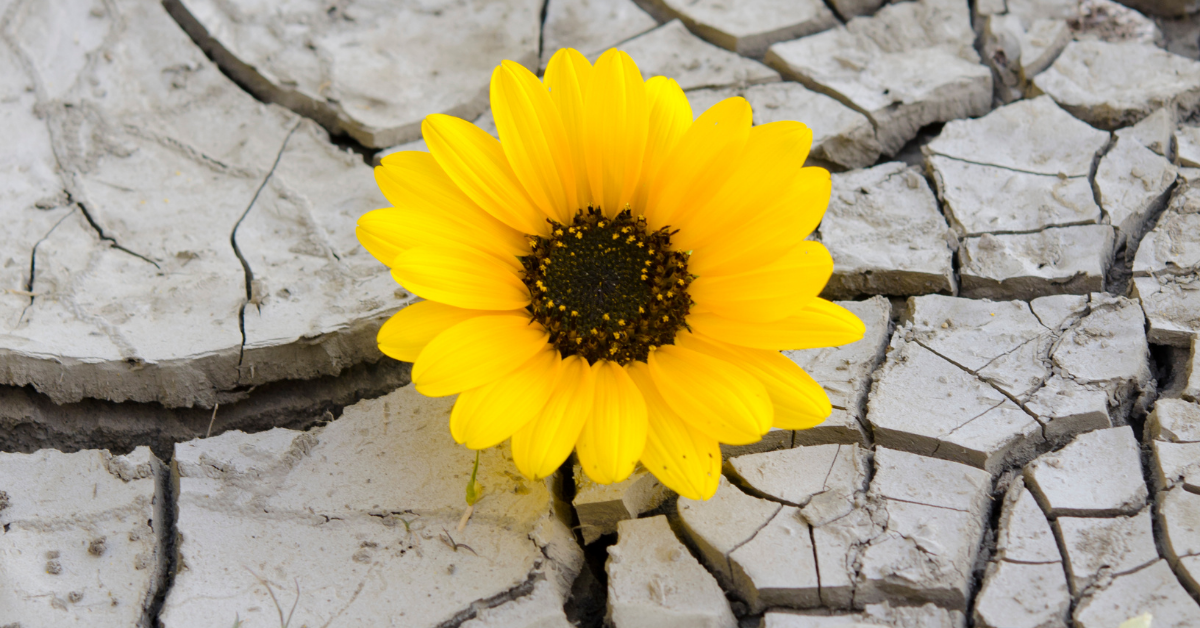
The Role of Entertainment During a Disaster
Amidst the chaos and uncertainty of a disaster or emergency, it is easy to overlook the importance of entertainment and its impact on mental health. While it may seem trivial compared to more pressing concerns like food, water, and shelter, maintaining psychological well-being is essential for overall resilience and coping during challenging times.
Here are a few reasons why entertainment should not be forgotten in prepping efforts:
1. Distraction and Escape: Engaging in entertaining activities such as reading, listening to music, or watching movies can provide a much-needed distraction from the stressors of a disaster. It allows individuals to momentarily escape reality and find solace in a different world or storyline.
2. Emotional Outlet: Entertainment can serve as a cathartic release, allowing individuals to express and process their emotions. Whether through laughter, tears, or excitement, engaging in entertainment can provide a healthy outlet for emotional expression.
3. Bonding and Connection: Maintaining social connections is vital for emotional support, especially in hard times. Sharing and discussing entertainment preferences can foster a sense of community and camaraderie among preppers and aid in building and strengthening relationships.
4. Mental Stimulation: Engaging in intellectually stimulating activities like puzzles, board games, or creative endeavors can keep the mind active and prevent boredom or feelings of stagnation. This mental stimulation contributes to overall well-being and helps individuals maintain a sense of purpose and normalcy.
5. Promoting Resilience: Having access to entertainment can boost morale and resilience during difficult times. Engaging in activities that bring joy and laughter can contribute to a positive mindset, allowing individuals to navigate challenges better and maintain a hopeful outlook.
While the specific forms of entertainment may vary depending on personal preferences and available resources, the key is to prioritize mental health and well-being as part of your prepping efforts. Remember to include entertainment items such as books, games, musical instruments, or portable media devices in your emergency supplies.
By doing so, you are preparing for the physical aspects of a disaster and equipping yourself with tools for maintaining psychological resilience. [2]
#9 – Renewable Power and Off-Grid Security
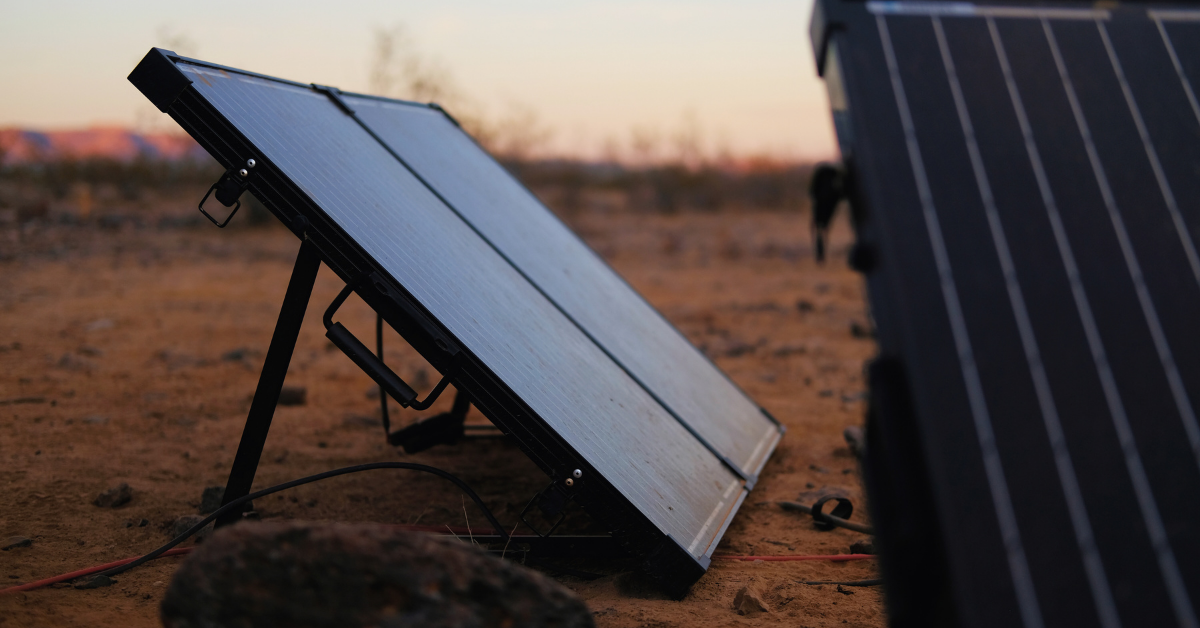
Renewable Power Sources like Solar Generators
The need for renewable power sources should be addressed. In a survival situation, traditional power grids may fail, leaving individuals without access to electricity. This is where solar generators come in handy.
Solar generators harness the sun’s power and convert it into usable energy, allowing preppers to charge their essential devices and power small appliances even when the grid is down. With technological advancements, solar generators have become more efficient and portable, making them an excellent investment for preppers.
By utilizing renewable power sources like solar generators, preppers can maintain a reliable energy source and be better prepared for long-term survival situations.
The Importance of Off-Grid Security Measures
A thing preppers forget to prioritize is off-grid security measures. In a crisis scenario, ensuring personal safety becomes paramount. Preppers must secure their living space and establish proper defensive measures to protect themselves and their loved ones. This can include setting up security cameras, reinforcing doors and windows, and establishing a communication network with fellow nearby preppers. Additionally, preppers should invest in self-defense tools and receive proper training to handle potential threats effectively. By incorporating off-grid security measures into their preparations, preppers can enhance their chances of surviving and thriving during challenging times.
#10 – Tools and Income Diversification
Having a Well-Stocked Toolbox and Cordless Power Tools
Remember to have a well-stocked toolbox. While food, water, and shelter are essential, having the right tools can make a difference in survival.
Here are a few reasons why having a well-stocked toolbox is crucial for preppers:
Repair and Maintenance: In a post-disaster scenario, finding a professional to fix broken items or perform necessary maintenance may not be easy. A toolbox with various tools can help you handle basic repairs and keep essential equipment and structures in working order.
Building and Construction: If you need to build a shelter or fortify your existing one, having the right tools is essential. Tools like hammers, saws, and drills can make construction tasks more accessible and efficient.
Security: In a survival situation, security is a top priority. Tools like bolt cutters, crowbars, and padlocks can help secure your belongings and strengthen your defenses.
Income Diversification: While prepping is all about self-sufficiency, having additional skills and tools can also provide opportunities for income generation. For example, if you have a well-stocked toolbox and knowledge of carpentry, you can offer your services to others in need.
In addition to a well-stocked toolbox, it’s also essential to consider investing in cordless power tools. These tools have become increasingly popular due to their portability and convenience. Cordless power tools allow preppers to work in various locations without the limitations of cords or power outlets. They run on rechargeable batteries, making them ideal for off-grid situations. Some essential cordless power tools include drills, saws, and impact drivers.
Remember, while food, water, and shelter are essential for survival, having the right tools can be a game-changer in a post-disaster situation.
So remember to include a well-stocked toolbox and cordless power tools in your prepping plans.
Conclusion
In conclusion, every prepper should consider all aspects of preparedness, including the often-overlooked items discussed in this article. While it’s easier to focus on basics like food storage, stockpiling water, and shelter, forgetting other important things can leave preppers vulnerable in catastrophes.
By taking the time to assess their preparedness plans and make necessary adjustments, preppers can ensure they are well-equipped to handle any potential challenges they may face.
To recap, some of the commonly things preppers forget include:
Various cooking solution: If one method fails you need a back up to prepare your food.
Utility cart: Carrying heavy items like firewood, equipment, an injured person, or water.
Spare parts: For equipment like generators.
Building materials: Necessary to repair a shelter or create barriers for protection.
Sewing materials: Mending clothes or repairing other items.
Pair of spare glasses: Lifesaver when your glasses get damaged.
Fuel: For vehicle and/or generators is also good to storage.
Personal health: Managing health issues could be underestimated and must be looked at personally.
Special needs: Infant and people with specific conditions do have needs in food and medication.
Renewable power: Traditional power grids may fail and solar generators have become more efficient and portable. Excellent for prepper.
Finally, I would like to remember you to pack extra batteries, a can opener, your personal hygiene products and don’t forget to keep your important documents like ID, birth certificates, insurance papers, etc. safe and waterproof.
P.S. : Want to learn more about living independently?
We wrote a whole article about How to Live Off The Grid.
Living Off-Grid gives you full control over your utilities and aren’t as impacted by external issues like power outages or other disruptions.
